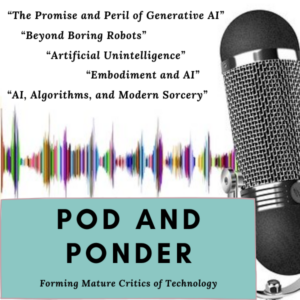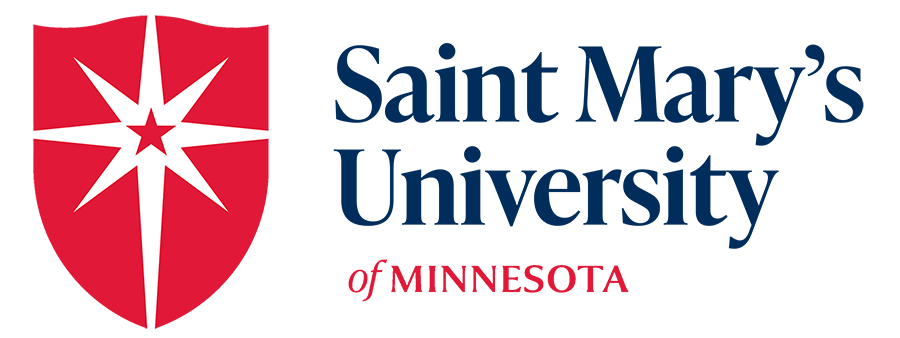In his recent encyclical, Pope Francis characterizes our times as an “age of superficiality” in which we are all “rushing frenetically from one thing to another without really knowing why, and ending up as insatiable consumers . . . unconcerned about the deeper meaning of our lives.” Automation and modern AI seem to promote this “age of superficiality” as educators and students often respond with a consumer spirit by moving from tool to tool with a focus on productivity over service and ease over the difficult task of love. Consequently, responses to modern AI have been shortsighted because education has been dominated by a narrow form of skills-based schooling that emphasizes workforce preparation over whole-person formation.
Lasallian education, with its attention to the practical needs of learners within the context of forming whole persons as a leaders prepared for ethical lives of service, offers a meaningful response to emerging technologies by enabling students to withstand the “age of superficiality” and order tools to the dignity of the human person.
Join the Character Education in the Age of Automation series for webinars that approach emerging technology from the insights of whole-person education. This series, part of the Center’s Empowering Ethical Leaders Initiative, promotes human flourishing and dignity through integrating character education and mature technology-adoption in the classroom.
Upon completing this series, participants will be able to
- Promote human flourishing and dignity through integrating character education, virtue formation, and mature technology-adoption within their classrooms, units, and programs
- Create whole-person learning environments in which students can develop and reach personal development goals in the context of their unique vocations
- Develop AI-assisted assessments and transparent AI policies consistent with the insights of ethical responses to emerging technologies
- Support student-driven research with frameworks and tools that center the human person in the process of creating new knowledge
- Confidently respond to future emerging technologies with their own educational artistry informed by innovative and effective educational practices
Forming Mature Critics of Technology
Fall 2024
 This Pod and Ponder series brought members of the community together to discuss how to form students as mature critics of innovative technology. Participants reflected on podcasts featuring educators, technology critics, and digital humanists that call for purposeful and holistic responses to modern AI from various perspectives and philosophical commitments. Together, participants focused on developing practical classroom strategies that help students grow as mature critics of the digital age. For the full list of podcasts visit the Pod and Ponder page.
This Pod and Ponder series brought members of the community together to discuss how to form students as mature critics of innovative technology. Participants reflected on podcasts featuring educators, technology critics, and digital humanists that call for purposeful and holistic responses to modern AI from various perspectives and philosophical commitments. Together, participants focused on developing practical classroom strategies that help students grow as mature critics of the digital age. For the full list of podcasts visit the Pod and Ponder page.
Integrating Modern AI in the Holistic Classroom
May 10th, 10-11:30 AM
What could character have to do with ChatGPT? Why turn to ideas of virtue and care ethics when evaluating the educational impact of generative and predictive AI? This session starts the series with a discussion of the intellectual habits and dispositions needed for students to become mature evaluators of emerging technologies beyond available tools in the current AI hype cycle. Participants will be introduced to whole-person perspectives that can guide technology integration in the classroom, including the Jubilee Centre Framework for Character Education and the care ethics theory of Educational Caritas. Participants will then reflect on appropriate technology use in their disciplines in light of these frameworks, develop AI-assisted assessments, and draft transparent AI assessment policies.
Webinar Materials and Recording
Project-Based Learning with the PAIR Framework
June 18th, Noon – 1:00 PM
Want to integrate authentic assessment into your courses but not sure where to start? Are you looking for ways to improve student agency and ownership of the learning process? Project-Based Learning with generative AI can be an effective way to mirror professional tasks students will encounter in future teams. Structuring a learning experience around an authentic problem can also demonstrate for students how large language models are more effective at brainstorming than generating unique insights and solutions. Working in an assignment planning journal, participants will follow the PAIR framework to co-design a project-based assignment, evaluate that assignment according to the High-Quality Project Based Learning Framework, and draft an AI-support policy for a specific assignment.
Webinar Materials and Recording
Writer in the Loop
June 25th, Noon – 1:00 PM
This online workshop facilitated by the Writing Center introduces participants to the “writer in the loop” model for teaching students how to ethically and effectively use large language models (AI). The “writer in the loop” model builds off the “human in the loop” literature on prompt engineering to develop a framework that maximizes student learning. There are two primary goals: 1) help faculty and staff develop an intellectual framework for when AI is appropriate for student use; and 2) develop skills in teaching the ethical and effective discipline-specific use of AI in the classroom. Come with questions and any insights you might want to share.
Selecting Tools for Conviviality
July 16th, Noon – 1:00 PM
How do we ensure that we shape tools to learners rather than learners to tools? This workshop will answer that question by providing a whole-person response to modern AI based on the ideal of a convivial society. Assignment sequences that prepare students to respond to AI with maturity will be demonstrated along with conversation on how aspects can be applied to different disciplines. Throughout, participants will work within a personal digital journal to apply principles from the session to their own formation of the students entrusted to their care. Participants will leave with a plan to promote human flourishing in their classroom through the integration of character education and virtue formation with mature technology adoption.
Webinar Materials and Recording
Holistic Learning Outcomes in an Age of Automation
August 13th, Noon – 1:00 PM
What is your greatest hope for your students as they navigate the ethical complexity of modern AI and future emerging technologies? The answer to that question can guide your teaching as you refine plans for fall and think about redesigning for spring. This session invites participants to rethink course design according to the kind of persons we form, which will in turn include concerns regarding skill training, economic mobility, and the ability to thrive within society. Building on the initial course design ideas from past sessions, participants will refine their goals into formal learning outcomes, ensuring alignment with proposed AI-assisted assessments, and draft assignment sequences that integrate outcome-driven policies on student AI use.
Webinar Materials and Recording
The Virtues, The Vices, and AI: Using the 12 Virtues of a Good Teacher to Form Good Habits with AI
August 20th, Noon – 1:00 PM
Join the Saint Mary’s Library to consider together how to evaluate our use of AI tools in ways that lead to the formation of positive habits that preserve critical thinking, promote human dignity, and build AI literacy skills. This webinar explores how the 12 Virtues of a Good Teacher can support proper and ethical use of generative AI. We will use these virtues to help better understand how to use AI in school and work settings.
Meet the Facilitators

Christopher Adamson
Director, Center for Excellence in Learning and Teaching

Nate Titman
Writing Center Consultant

Alex Urquhart
Writing Center Consultant

Matt Isaia
Instruction & Online Outreach Librarian, Education
